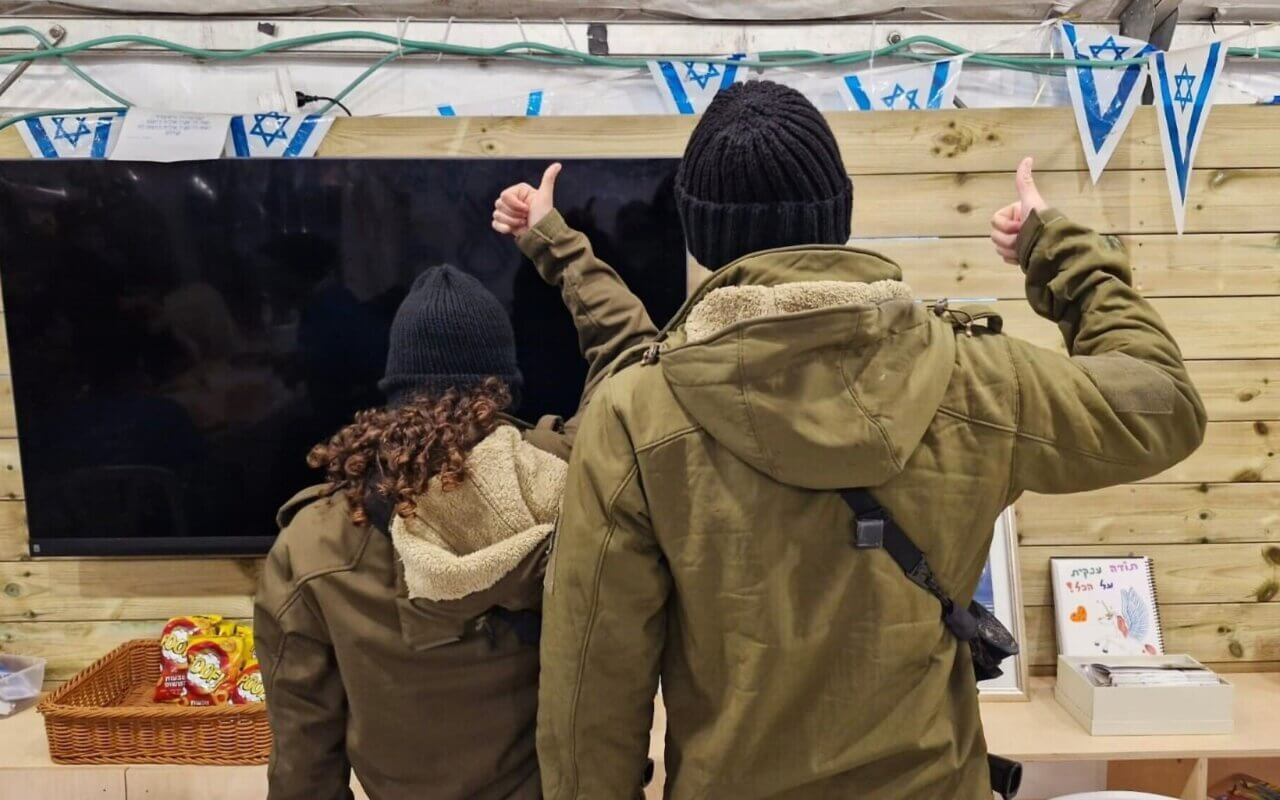The “little project that could” got together and did: A group of women has made 5,000-plus black caps; more than 1,000 yarmulkes; and blankets for moms, babies and kids.
Originally appeared in Jewish News Syndicate, October 14th, 2025.
It all started with a single hat and a protracted negotiation with the Israel Defense Forces 20 years ago, and it kept evolving and growing.
In 2006, one Gush Etzion mother asked another what project they might take on to help IDF soldiers. Efrat resident Channah Koppel, a knitter and organizer of a local group of handcrafters known as “Chicks with Sticks,” learned that the soldiers would appreciate “warm, snug hats.”
And so, she developed a pattern and knitted a hat to keep her IDF paratrooper son warm during the winter of 2008. However, her son’s commander informed her that knit hats were not in compliance with army regulations at the time. Eventually, the military reconsidered its policy and gave approval for soldiers to wear crocheted hats, and the moms mobilized quickly to get them on the heads of soldiers.
Koppel reports in her blog, “Once it had been approved by the commanders, we made a bunch of hats, sent out a couple of emails and—boom! The internet is an amazing place.” Koppel and her fellow knitters reached out to their networks all around the world, including England, South Africa, the United States and Canada, in search of women and men willing to make hats.
From the earliest days of the project, the knitters have followed a pattern and used black, machine-washable wool. Each hat bears a label in Hebrew that reads: ‘Knitted for you with warmth and love.”
Koppel reports that “since then, knitters from around the world have been mailing me hats—hundreds of them—for Israeli soldiers.” She remained involved with the project until 2022.
One knitter who heeded the call to join the team was Pamela Chasen. She learned about the project from Sabina Shmidman, the wife of the late Rabbi Joshua Shmidman, at her synagogue, Adath Israel Poale Zedek Anshei Ozeroff in Montreal. She just happened to be Koppel’s mother.
Chasen quickly became very actively involved in the project. She reports that they sent 75,000 hats to Israel between 2008 and the start of the COVID pandemic of 2020.

‘Until the war, the project was a hobby’
Perhaps somewhat ironically, the project nearly drew to a close a year before the Iron Swords War in Gaza that started after the Hamas-led terrorist attacks in southern Israel on Oct. 7, 2023.
In June 2022, Koppel wrote in her blog: “Thank you, everyone, for 15 amazing years! I estimate that over the years, we have together distributed about 75,000 hats to soldiers. Who could have imagined that all this would grow out of a little knitting group’s desire to do some good in the world? It’s been quite the ride, and the best part has been meeting all of you, but now it feels like time to move on. I have not found anyone to take over the project, so summer 2022 will be our last hurrah. I wish I had the words to thank each and every one of you for all your efforts, kindness and generosity. Please just know that I appreciate you immensely and wish you much joy. May you continue to find warm and loving ways to help others, for many, many years to come.”
Koppel could not have seen Oct. 7 coming. The invasion and ensuing war gave the organization new urgency, purpose and momentum.
“Until the war, the project was a hobby,” says Chasen, who recounts that “Channah got a hold of me the first week after Oct. 7. She informed me that 300,000 guys were being called up (for army service) and that winter was on the way. We reached out to individuals, synagogues, Jewish Community Centers, whoever. We told people who didn’t knit that there were knitting tutorials on YouTube.”
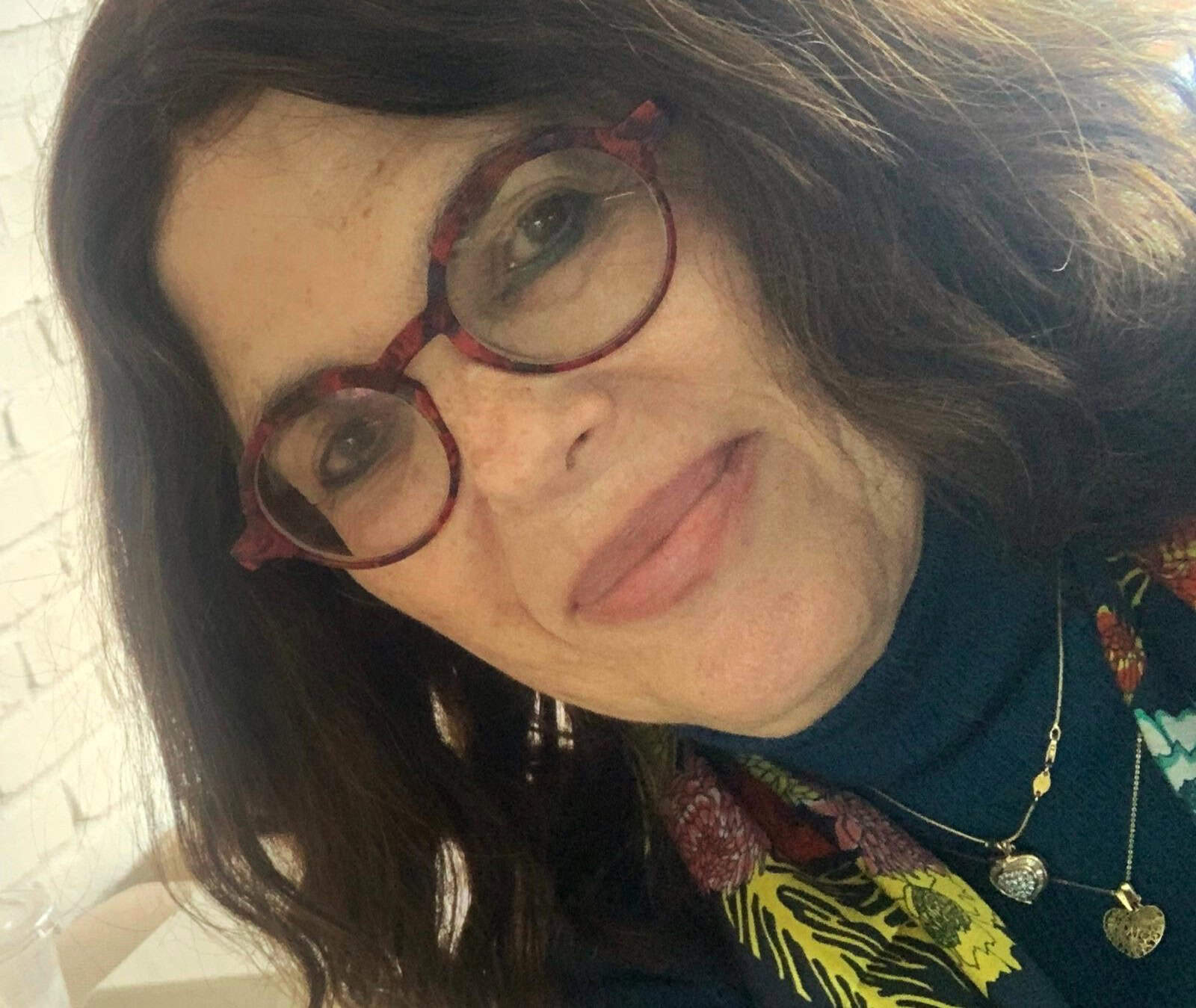
Chasen is proud of her fellow Canadian group of knitters, who went by the informal name of “The Canadian Group, but have changed their name to Ameinu (“Our People”) since “our efforts are for our people.”
The initiative involves people with many talents. “We have knitters, stitchers, people who transport duffel bags. One woman told me she didn’t knit, and I asked her if she could write. I told her to start with 200 personal notes to accompany each hat.”
Shelley Mandelcorn, a project volunteer from Montreal, shares: “I started helping out quite by accident. My sister, who lives in Toronto, saw an ad looking for knitters to knit for the IDF. I reached out to that organization and was put on a chat. I noticed Pam’s name on that chat too and reached out to her. I was a little apprehensive about what was going on and wanted Pam’s input. To make a long story short, I got involved with Pam and her organization. I’ve knit for them, recruited more people in Montreal to knit and schlepped duffle bags to Israel for them. Everyone is really amazing.”
The project helps Mandelcorn keep Israel and IDF soldiers in her thoughts at all times. “This is such a small thing that we can do for the soldiers and their families to let them know we are constantly thinking of them. Every stitch we make keeps them in our minds. And believe me, there are lots of stitches in each hat and blanket that we make!”
She adds that “I am super grateful to have met all the amazing organizers and selfless knitters, who are literally giving hours of their time for this cause.”
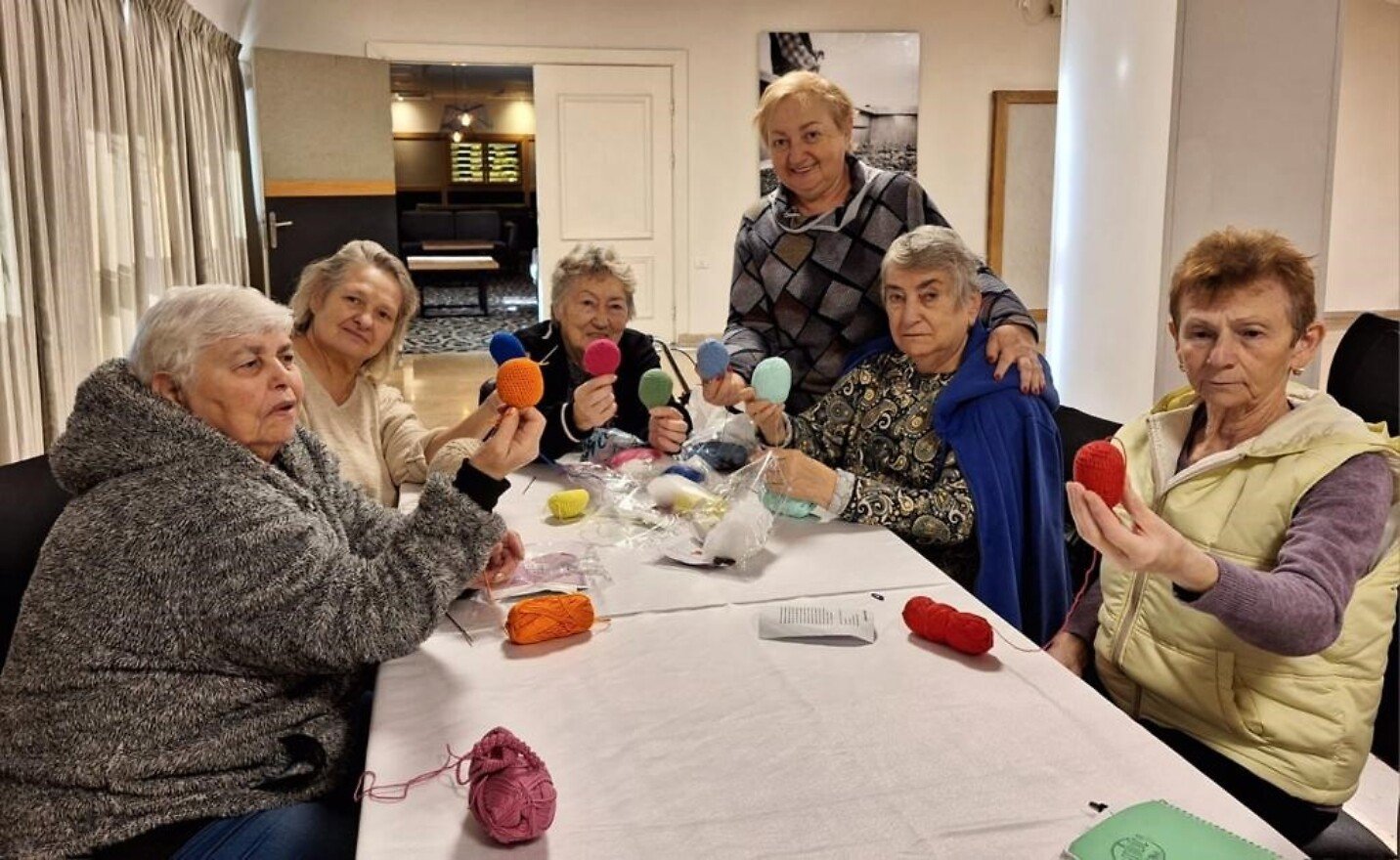
‘It has taken over my life’
Chasen notes that an average of one duffel bag has been shipped to Israel since the start of the war, even when air travel to Israel was significantly curtailed. They have sent:
- 5,610 hats
- 1,269 yarmulkes
- 275 neck warmers
- 347 knitted blankets for the soldiers at the amputation clinics, as well as for at-risk and orphaned children
- 143 baby blankets for moms giving birth whose husbands are serving or deceased
- 132 baby quilts for babies in hospitals (project of the Ottawa group)
- 63 adult quilts for soldiers in the hospital
- 32 knitted dolls for children of evacuees
During a Zoom interview with JNS from her home in Toronto, Chasen proudly reports that “our 115th duffle bag left just over a week ago.” And the project continues to expand and evolve.
In January 2024, a social worker in Israel working with displaced families living in hotels contacted Ameinu to describe the boredom that adults and children were facing. “We sent activity kits, hook rug kits, candle-making kits, doll-making kits, and yarn and hooks,” said Chasen, who reports that the project was so successful that participants ran weekly markets in the hotels to sell their creations.
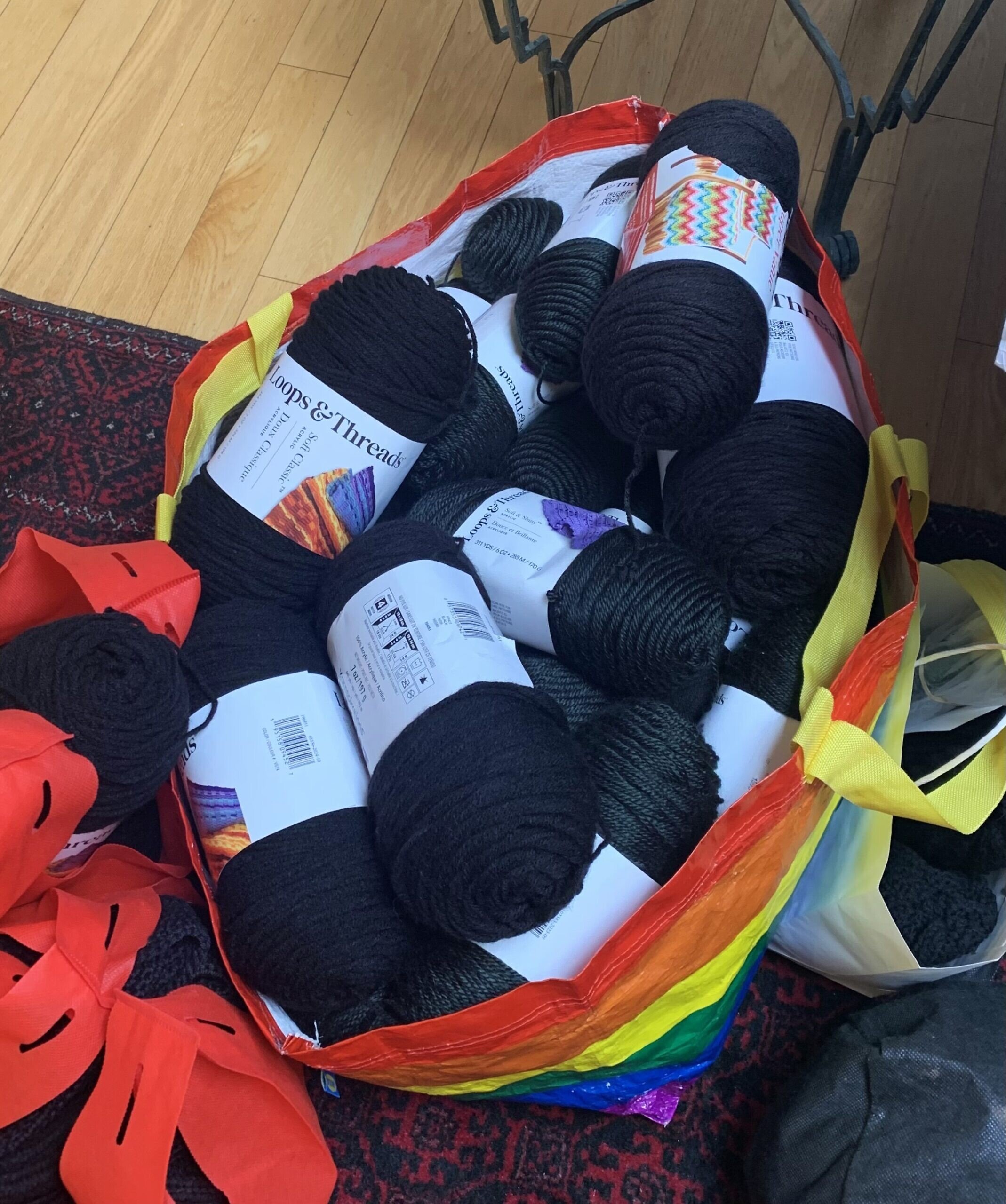
“I visited the hotels and saw it in person,” she says. “It was very emotional. They were so grateful.”
Even as the war in Gaza appears to be winding down, Ameinu’s work continues.
Group members now make blankets for war amputees at Sheba Medical Center in Tel Hashomer. Each amputee receives a knitted blanket for their wheelchair. They also provide blankets for every woman who gives birth and has a husband fighting in the IDF. “We have given 157 of those blankets so far,” says Chasen.
She adds that “last week, we got a call from Save A Child’s Heart (the Israeli-based international nonprofit that provides cardiac health care to children worldwide). We do whatever we can. Each person is as important as the next!”
Currently, the team consists of 50 knitters in Montreal, 20 in Ottawa and a few others scattered throughout Canada. Chasen also acknowledges the important work of the “holy pigeons,” those who help get the bags to the airports for transport to Israel. She is unwilling to take credit for the success of the operation, though Chasen admits to working eight to 10 hours daily on the project and playfully says, “it has taken over my life.”
‘Heroes and angels’
On the ground in Israel, people like Maish Isaacson of Ra’anana make sure individuals and organizations receive the precious knitted items arriving from Canada.
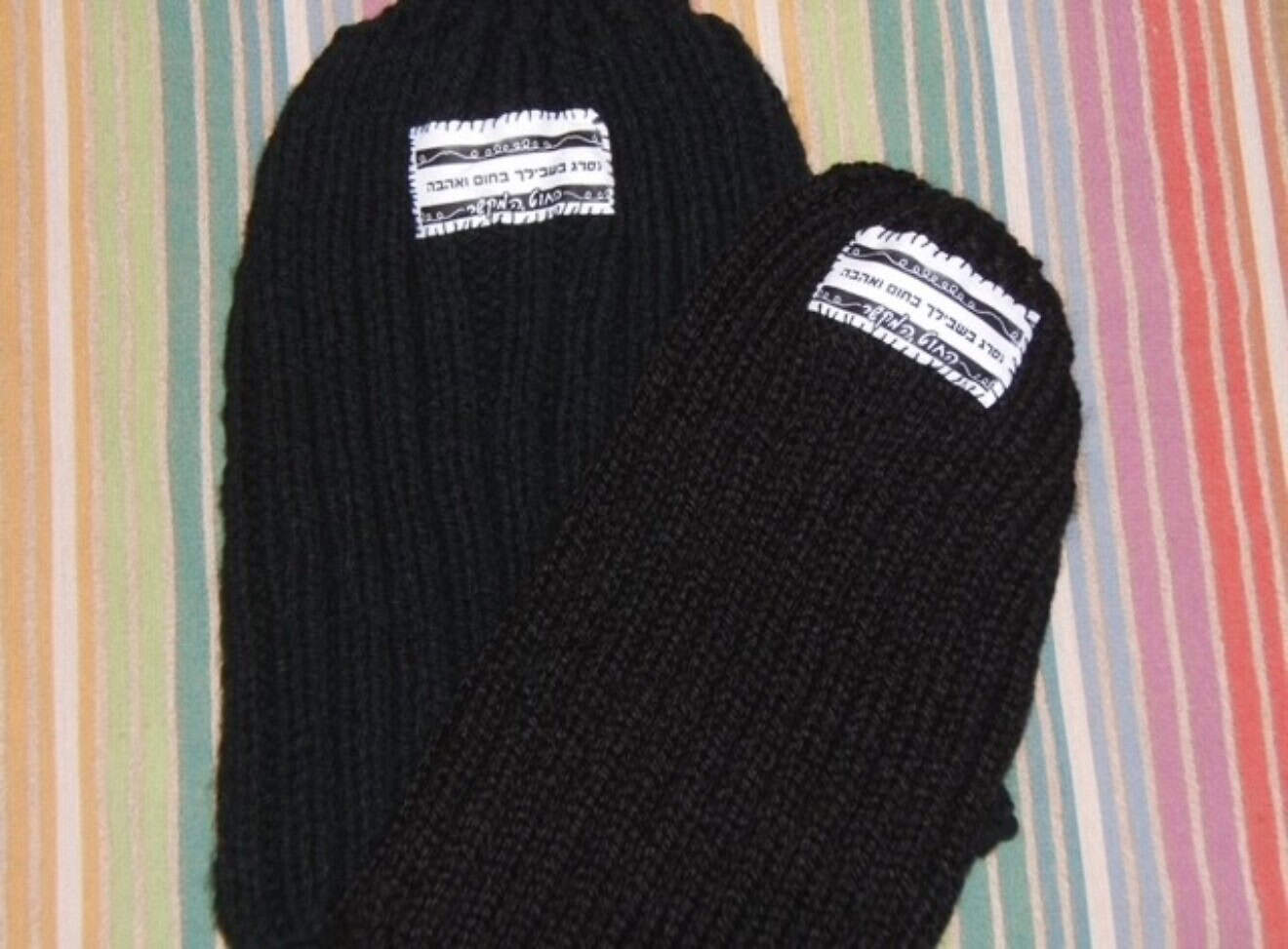
Isaacson, who by day serves as chairman of TELFED—an organization that helps new immigrants from South Africa and Australia integrate into life in Israel and inspires them to give back to Israeli society—reports that his organization has communities and networks of volunteers around the country, and is therefore in a good position to help with distribution.
Like Chasen, Isaacson downplays the importance of his role. “I am simply the point man in Israel, dealing with heroes and angels. I am just a delivery guy. They do amazing work. What I do is minimal.”
Isaacson refers to Chasen as one such angel and heroine.
“Through partnerships like ours with Ameinu, we connected donors directly with projects that made a tangible difference: from distributing wool to elderly evacuees who used knitting as therapy and community-building to delivering thousands of beanies to soldiers stationed from the north to the south, and providing blankets and toys to displaced families,” says Isaacson.
He even gets requests for hats for soldiers while he is praying at his local synagogue.
“Guys will come up to me, say that other guys got hats and ask if they can get some,” he relates. “Any soldier can get them! We are not fussy where they go, as long as they go to a soldier.”
